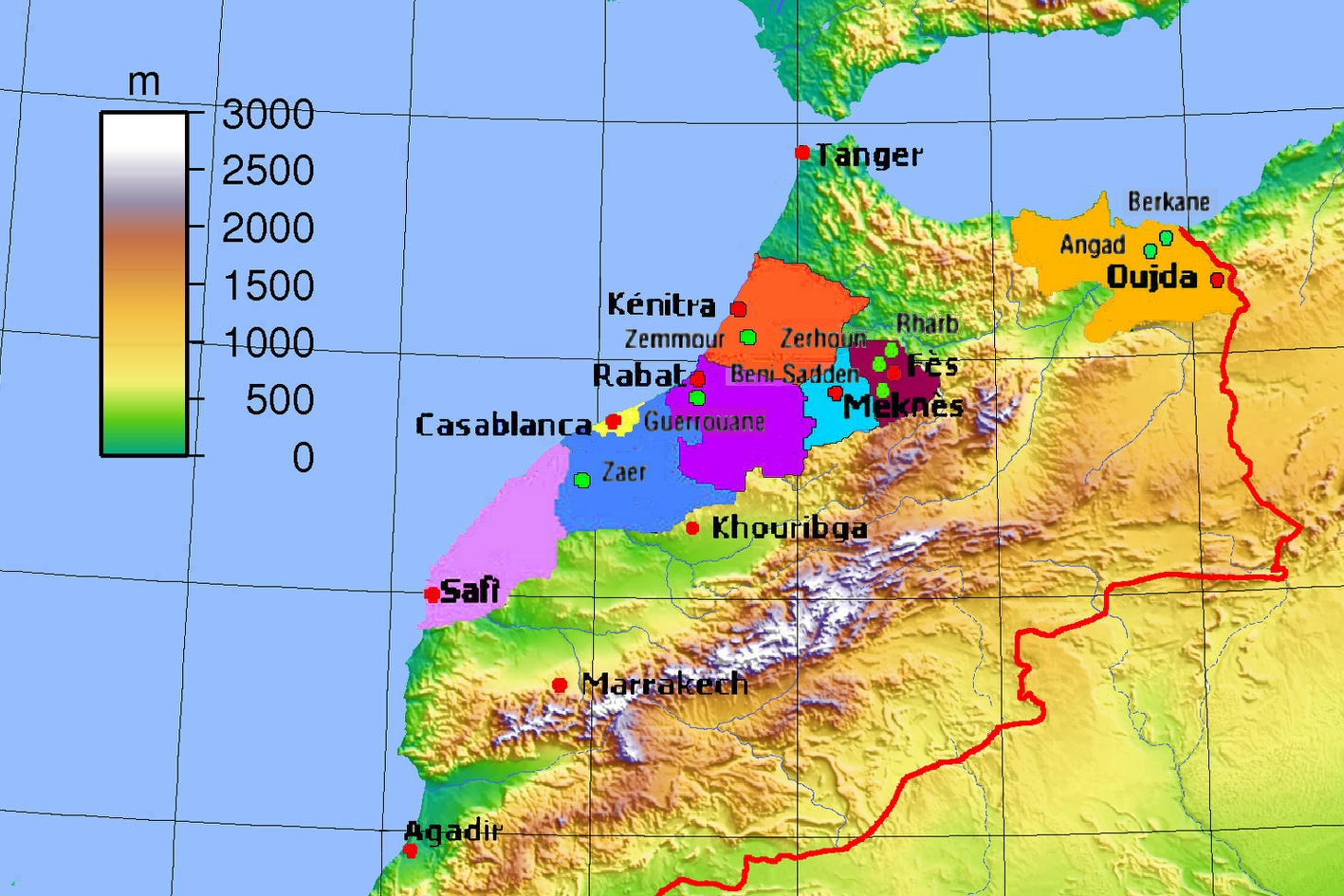
Un joyau caché du Maghreb
« Pour les amateurs de vin en quête de découvertes hors des sentiers battus, une bouteille de vin marocain pourrait bien être la révélation que vous attendiez »
Situé au carrefour de l’Afrique et de l’Europe, le Maroc n’est peut-être pas le premier pays qui vient à l’esprit lorsqu’on pense au vin. Pourtant, cette nation d’Afrique du Nord possède une histoire viticole profondément enracinée, une industrie moderne florissante, et une réputation internationale croissante. Des vignobles baignés de soleil aux traditions ancestrales, le vin marocain offre une histoire unique et fascinante qui mérite d’être mieux connue.
Brève histoire du vin au Maroc
On pense que les Phéniciens ont introduit la viticulture dans la région il y a plus de 2 500 ans, suivis par les Romains qui ont développé sa culture. Malgré l’héritage islamique du pays, la production de vin a perduré au fil des siècles, parfois de manière discrète. Durant le protectorat français (1912-1956), la viticulture connaît un renouveau important. À la moitié du XXe siècle, le Maroc devient l’un des plus grands producteurs de vin du monde arabe.
Après l’indépendance en 1956, l’industrie décline en raison de la nationalisation et de priorités politiques changeantes. Mais dans les années 1990, une vague de privatisations et d’investissements étrangers – notamment français – relance la viticulture marocaine.
Production et consommation
Aujourd’hui, le Maroc est l’un des principaux producteurs de vin en Afrique, aux côtés de l’Afrique du Sud. Environ 50 000 hectares de vignes y sont cultivés, avec une production annuelle dépassant les 40 millions de bouteilles. Bien que la consommation intérieure soit limitée par des normes religieuses et culturelles, le marché reste significatif grâce aux touristes, expatriés, et à une partie de la population non pratiquante. Par ailleurs, les vins marocains sont de plus en plus exportés vers l’Europe et au-delà, où ils attirent l’attention pour leur qualité et leur personnalité.
Styles de vin et cépages
Les styles de vin marocains sont fortement influencés par les traditions viticoles françaises, mais présentent une touche nord-africaine distinctive. Le pays produit des rouges, rosés et blancs, bien que les rouges représentent environ 75 % de la production.
Les cépages les plus couramment cultivés sont le Carignan, Cinsault, Grenache, et Syrah (de plus en plus prisée, produisant des rouges élégants et épicés, avec un bon potentiel de garde), ainsi que le Cabernet Sauvignon et le Merlot (offrant une reconnaissance internationale).
Pour les vins blancs, on retrouve fréquemment la Clairette Blanche, le Chardonnay (souvent vinifié dans un style moderne, avec ou sans fût) et le Sauvignon Blanc.
Les vins rosés frais, fruités et faciles à boire sont très appréciés dans le climat chaud du Maroc.
Régions viticoles du Maroc
Les vignobles marocains bénéficient d’un climat méditerranéen favorable, avec des journées chaudes, des nuits fraîches et les brises atlantiques qui contribuent à préserver l’acidité et la complexité des raisins. La majorité des régions viticoles se trouvent dans le nord du pays, près de la côte atlantique ou dans les contreforts de l’Atlas.
Principales régions viticoles :
- Meknès / Fès : le cœur de la production viticole marocaine. Située sur un plateau au pied du Moyen Atlas, la région bénéficie de conditions idéales. On y trouve la première Appellation d’Origine Garantie (AOG) du pays, Coteaux de l’Atlas, et le prestigieux domaine Domaine Zouina.
- Benslimane : proche de Casablanca, cette région profite de l’influence océanique et d’une longue tradition viticole.
- Boulaouane : plus au sud, connue pour ses vins accessibles, notamment des rouges et rosés faciles à boire.
- Zenata : située entre Casablanca et Rabat, cette région a été revitalisée ces dernières années grâce à de nouveaux investissements et à une meilleure gestion des vignobles.
- Sahari et Berkane : régions plus arides de l’intérieur du pays où l’irrigation est essentielle. Les vins y sont souvent plus riches et plus corsés.
L’avenir du vin marocain
Le vin marocain est à un tournant enthousiasmant. Grâce à des investissements croissants, des techniques améliorées et une reconnaissance internationale grandissante, les vins du pays sont plus raffinés et diversifiés que jamais. Les pratiques durables et biologiques prennent également de l’importance, en accord avec les tendances mondiales.
Bien que certains défis subsistent – notamment l’équilibre entre tradition et modernisation, et la gestion des sensibilités culturelles – les vignerons marocains prouvent que le vin de qualité peut s’épanouir dans des lieux inattendus.
Pour les amateurs de vin en quête de découvertes hors des sentiers battus, une bouteille de vin marocain pourrait bien être la révélation que vous attendiez.
Article préparé par un chroniqueur des Actualités en ligne de la Chaîne.
Rédigé à partir de sources diverses, sauf erreur ou omission.
Ndlr. : texte en français préparé par ChatGPT
Le prochain pays de la Chaîne - si tout va bien